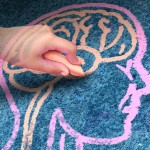
Could Your Anxiety Be a Sign of ADHD?
A person suffering from Attention Deficit Hyperactivity Disorder (ADHD) displays behaviors of hyper-activity and inattention. It is common for hyper-activity to stem from anxiety and/or stress. Due to their limitations (e.g. poor memory and attention), many people with ADHD are under constant stress in their daily life, and when this stress builds up, it can trigger anxiety and depression that further complicates the situation and causes more hyper-active behaviour. ADHD is troubling enough on its own, but when paired with anxiety and depression, it becomes even more difficult to manage.
ADHD symptoms can often be masked by more prominent symptoms of anxiety and depression. Many experience laziness, trance-like states, panic attacks and suicidal thoughts. It is not uncommon for an individual with ADHD to be first diagnosed with an anxiety disorder such as a phobia, obsessive-compulsive disorder, or social anxiety. ADHD and anxiety go hand in hand: ADHD exacerbates anxiety symptoms and makes them more apparent, and anxiety amplifies existing ADHD symptoms. Due to poor memory and inattention, one might arrive late for work or an important appointment, or miss meetings or deadlines. The negative outcomes of these types of events can exacerbate already stressful situations and trigger more anxiety. Even the mere thought of failing at a task will give people with ADHD the jitters.
This mother’s first encounter with ‘anxiety secondary to ADHD’ in her daughter, Katie, was an indication that she needed help:
“On Katie’s 15th birthday, we went on a shopping spree at Ikea. For much of that summer, she had worked on cleaning, organizing, and redecorating her room. We were proud of the great job she did. And then it happened – one night she came into the living room with two pairs of socks in her hand. She was hysterical because she didn’t know where to put them. I tucked her into bed, and she curled into a fetal position and cried. I put her socks away. That was the first episode, but not the last. The prediction I’d read about came to mind; anxiety had reared its ugly head.”
Anxiety can be tricky. It is important to differentiate the symptoms of anxiety from those of ADHD. Having feelings of restlessness, guilt or irritability may point to ADHD, but they can also be signs of anxiety. To be sure, these questions can help people understand their condition:
- Are you overly troubled (anxious) about certain situations or activities?
When compared to the normal reactions in others, are your fears of negative outcomes highly exaggerated? Is it difficult for you to lessen this anxiety?
- Is your anxiety making you restless, exhausted, sleepless or irritable?
Does your anxiety cause you to be highly distracted?
- Do you find that your anxiety is creating social imbalances in your life?
Are you facing difficulty in performing socially, academically or otherwise?
- How prolonged is your anxiety and how often does it occur?
Have you experienced bouts of anxiety 3-5 times in a week? How long did they last?
- Do anxiety disorders run in the family?
It is important to find out the core causes of your anxiety or ADHD. These causes may point to someone in your family who has had the same disorder. Likewise, if someone in your family was diagnosed with any anxiety disorder, you are at a greater risk of inheriting it.
- What are the causes of your anxiety?
Anxiety can come from various sources. For instance, you may be stressed out at work/school, or you may have family issues or financial problems. It is important to identify the root cause, because it is normal to be anxious in certain stressful situations
These questions will help to provide you with a clearer picture of your ADHD symptoms.
Dr. David Feifel, Professor of Psychiatry at The University of California in San Diego, explains how to differentiate general anxiety from ADHD anxiety. According to Feifel, people with generalized anxiety will show anxiety indiscriminately. However, people diagnosed with ADHD will focus on behaviors that inhibit their productivity. This is when they feel challenged due to their limited capacities to perform in the required way. They grow anxious about what is expected of them and fear what they might produce instead. They pursue repetitive behaviors, show laziness and general discomfort in response to their functional surroundings.
It is always best to have a thorough screening for ADHD. However, individuals must be prepared for whatever comes their way. As clinical psychologist Ruth Hughes says, “One of the things we really counsel parents about is: don’t assume everything going on is the ADHD. This is rarely a disorder that travels alone. Ask your physician very specifically, ‘Do you think there are any co-occurring disorders?’ If you think there are any symptoms that don’t go with ADHD, bring it up.”
ADHD is a puzzling and complex disorder. Misunderstandings are therefore bound to occur. You need to treat yourself to a fun activity every now and again to shake off that extra stress. A night out with your friends or a movie marathon will help you relax enough to reflect on the problems in your life. More importantly, sharing your problems with a loved one will give you the confidence and support you need. Do not let your anxiety take over.
Images: https://www.flickr.com/photos/35012916@N03/5891029555





